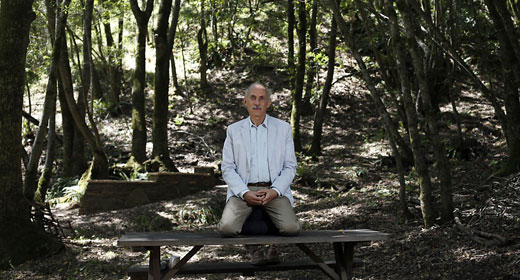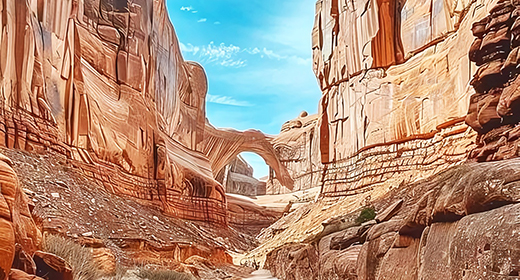by Jack Kornfield: These are extraordinary times for a spiritual seeker. Modern spiritual bookstores bulge with texts of Christian, Jewish, Sufi, and Hindu mystical practices. The many contradictory perspectives we encounter pose one of the great dilemmas of spiritual life: What are we to believe?

Initially, in our enthusiasm for our practice, we tend to take everything we hear or read as the gospel truth. This attitude often becomes even stronger when we join a community, follow a teacher, undertake a discipline. Yet all of the teachings of books, maps, and beliefs have little to do with wisdom or compassion. At best they are a signpost, a finger pointing at the moon, or the leftover dialogue from a time when someone received some true spiritual nourishment. To make spiritual practice come alive, we must discover within ourselves our own way to become conscious, to live a life of the spirit.
When we are faced with a variety of spiritual teachings and practice, we must keep a genuine sense of inquiry: What is the effect of this teaching and practice on myself and others? Am I being led to greater kindness and greater understanding, to greater peace or freedom?
Spiritual practice can never be fulfilled by imitation of an outer form of perfection. This leads us only to “acting spiritual”. In fact, initially, spiritual practice may feel like it is leading us in the opposite direction. As we awaken, we tend to see our faults and fears, our limitations and selfishness, more clearly than ever before. When we begin to encounter our own limitations directly, we may then try to look for another form of practice, a faster way, or we may decide to change our life radically, move our home, get divorced, join a monastery.
In our initial discouragement, we may blame our practice, or the community around us, or we may blame our teacher. This happened to me in my first year as a monk. I was practicing diligently, but I became quite frustrated after a time. The restlessness, doubt, reactivity, and judgmental mind I encountered were very difficult for me.
The more frustrated I became, the more the monastery looked sloppy and not conducive to enlightenment. Even my image of the master began to fit right in with this frame of mind. So I went to confront him. I bowed and paid my respects and told him I wanted to leave for a stricter monastery, that there wasn’t enough time to meditate where I was. “Eh,” he said, “there isn’t enough time to be aware?” “No,” I answered, somewhat taken aback by his question. But my frustration was strong, so I went on, “Besides that, the monks are too sloppy and even you aren’t silent enough. You are inconsistent and contradictory. This doesn’t seem like what the Buddha taught to me.” Only a Westerner would say something like this, and it made him laugh. “It’s a good thing I don’t appear like the Buddha,” he answered. Somewhat annoyed I replied, “Oh, yes, why is that?” “Because,” he said, “you would still be caught in looking at the Buddha outside of yourself. He isn’t out here!” With that he sent me back to continue my meditation.
“It is our very search for perfection outside ourselves that causes our suffering,” said the Buddha. Even the most perfect moment or thing will change just a moment later. It is not perfection we must seek, but freedom of the heart.
The Third Patriarch of Zen Buddhism explained that liberation arises when we are “without anxiety about non-perfection”. The world is not supposed to be perfect according to our ideas. We have tried so long to change the world, yet liberation is not to be found by changing it, by perfecting it, or ourselves. Whether we seek enlightenment through altered states, or in community, or in our everyday life, it will never come to us when we seek perfection. The Buddha arises when we are able to see ourselves and the world with honesty and compassion. In many spiritual traditions there is only one important question to answer, and that question is: Who am I?
What images do we hold of ourselves, of our spiritual life, of others? Are all these images and ideas who we really are? Is this our true nature? Liberation comes not as a process of self-improvement, of perfecting the body or personality. Instead, in living a spiritual life, we are challenged to discover another way of seeing, rather than seeing with our usual images, ideals, and hopes. We learn to see with the heart, which loves, rather than with the mind, which compares and defines. This is a radical way of being that takes us beyond perfection.








































